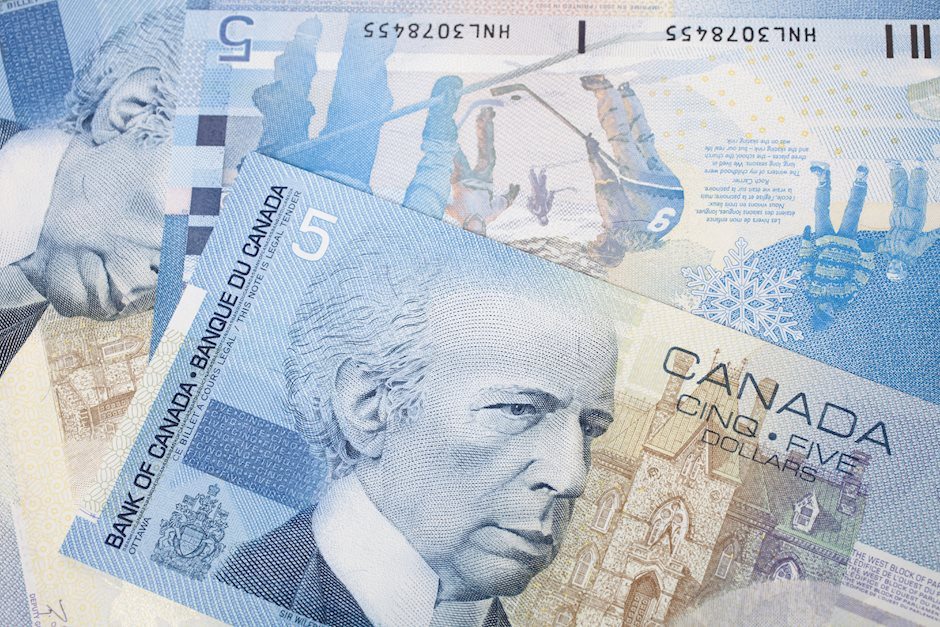USD/CAD falls toward 1.3600 ahead of FOMC Minutes
- USD/CAD extends its losses despite a market caution ahead of the FOMC Meeting Minutes release on Wednesday.
- Fed Governor Michelle Bowman expressed caution on any policy changes, citing ongoing upside risks to inflation.
- The Canadian dollar appreciates despite a dovish sentiment surrounding the Bank of Canada.

USD/CAD continues its losing streak, trading around 1.3620 during the Asian session on Wednesday. The US Dollar (USD) attempts to halt its three-day losing streak as traders turn cautious ahead of the release of the FOMC Minutes on Wednesday. Furthermore, traders await Fed Chair Jerome Powell's upcoming speech at Jackson Hole on Friday.
Federal Reserve (Fed) Governor Michelle Bowman expressed caution on Tuesday about making any policy changes, citing ongoing upside risks to inflation. Bowman warned that overreacting to individual data points could undermine the progress already achieved, according to Reuters.
CME FedWatch Tool suggests that the markets are now pricing in a nearly 67.5% odds of a 25 basis points (bps) Fed rate cut in its September meeting, down from 76% a day ago. The probability of a 50 basis points rate cut fell to 32.5% from 53.0% a week earlier.
The Canadian dollar strengthened despite soft domestic data that supports a dovish stance from the Bank of Canada (BoC). Furthermore, the commodity-linked CAD managed to hold its ground, even as crude Oil prices declined.
Canada's Consumer Price Index (CPI) eased to 2.5% year-on-year in July, down from 2.7% in the previous month, aligning with market expectations. This marks the slowest increase in consumer prices since March 2021. Additionally, the closely watched BoC Consumer Price Index Core fell to 1.7% YoY, from the previous 1.9% reading, reinforcing dovish expectations for the Bank of Canada.
West Texas Intermediate (WTI) Oil price extends its losing streak for the fourth successive session, trading around $72.90 per barrel at the time of writing, amid hopes for a ceasefire in the Middle East. US Secretary of State Antony Blinken confirmed that Israeli Prime Minister Benjamin Netanyahu accepted a proposal to resolve the issues delaying a Gaza ceasefire. However, tensions remain high as Hamas has threatened to resume suicide bombings, according to Reuters.
Canadian Dollar FAQs
The key factors driving the Canadian Dollar (CAD) are the level of interest rates set by the Bank of Canada (BoC), the price of Oil, Canada’s largest export, the health of its economy, inflation and the Trade Balance, which is the difference between the value of Canada’s exports versus its imports. Other factors include market sentiment – whether investors are taking on more risky assets (risk-on) or seeking safe-havens (risk-off) – with risk-on being CAD-positive. As its largest trading partner, the health of the US economy is also a key factor influencing the Canadian Dollar.
The Bank of Canada (BoC) has a significant influence on the Canadian Dollar by setting the level of interest rates that banks can lend to one another. This influences the level of interest rates for everyone. The main goal of the BoC is to maintain inflation at 1-3% by adjusting interest rates up or down. Relatively higher interest rates tend to be positive for the CAD. The Bank of Canada can also use quantitative easing and tightening to influence credit conditions, with the former CAD-negative and the latter CAD-positive.
The price of Oil is a key factor impacting the value of the Canadian Dollar. Petroleum is Canada’s biggest export, so Oil price tends to have an immediate impact on the CAD value. Generally, if Oil price rises CAD also goes up, as aggregate demand for the currency increases. The opposite is the case if the price of Oil falls. Higher Oil prices also tend to result in a greater likelihood of a positive Trade Balance, which is also supportive of the CAD.
While inflation had always traditionally been thought of as a negative factor for a currency since it lowers the value of money, the opposite has actually been the case in modern times with the relaxation of cross-border capital controls. Higher inflation tends to lead central banks to put up interest rates which attracts more capital inflows from global investors seeking a lucrative place to keep their money. This increases demand for the local currency, which in Canada’s case is the Canadian Dollar.
Macroeconomic data releases gauge the health of the economy and can have an impact on the Canadian Dollar. Indicators such as GDP, Manufacturing and Services PMIs, employment, and consumer sentiment surveys can all influence the direction of the CAD. A strong economy is good for the Canadian Dollar. Not only does it attract more foreign investment but it may encourage the Bank of Canada to put up interest rates, leading to a stronger currency. If economic data is weak, however, the CAD is likely to fall.
Author

Akhtar Faruqui
FXStreet
Akhtar Faruqui is a Forex Analyst based in New Delhi, India. With a keen eye for market trends and a passion for dissecting complex financial dynamics, he is dedicated to delivering accurate and insightful Forex news and analysis.

















